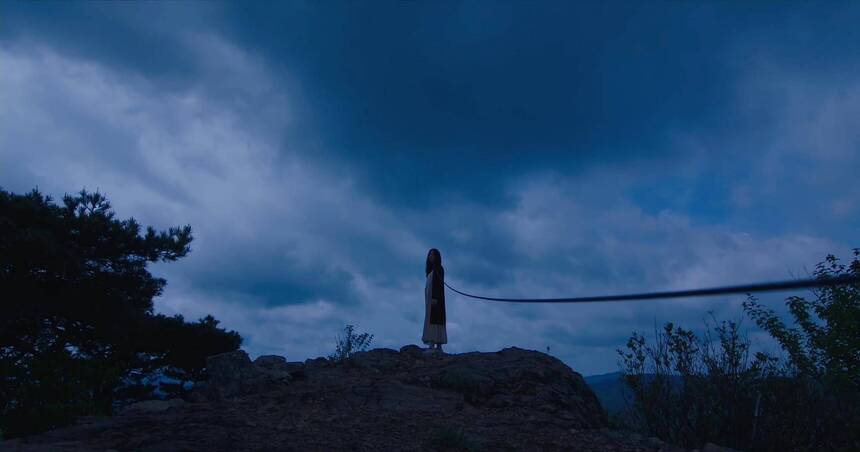Busan 2023 Review: AT THE END OF THE FILM, Hypnotic if Overlong Snapshot of Korean Indie Sector in Crisis

Director Ahn Sun-kyoung returns with her fourth and most ambitious work, At the End of the Film, screening in the Jiseok competitive section at the Busan International Film Festival (BIFF), ten years after her terrific sophomore film Pascha won the New Currents Award at the festival.
Ahn's many years as an indie Korean filmmaker have given her a unique vantage point on Korea's low-budget film industry, which serves as the setting for her latest.
Indie stalwart Park Jong-hwan, who appeared in no less than four titles at the 2021 edition of BIFF, plays struggling director Si-won. He has spent the last ten years preparing his debut film -- aptly a mountaineering story about a character who prepares for ten years to scale an infamous cliff face.
Concerned about the changing reality of the market and industry, Si-won's producer suggests partnering with an established web-drama screenwriter, who winds up pitching a lot of commercial changes to spice up the project but doesn't seem particularly interested in what his vision is.
Curiously, one of those changes involves switching the protagonist from a woman to a man. Given the presumably autobiographical nature of the film Si-won finds himself in, we can't help but wonder if the same thing happened to female director Ahn; if not this film (where it is likely a bit of black humor), perhaps an earlier project.
Si-won is also dealing with an ageing and ailing cat at home whose necessary medical treatments he doesn't have the funds to pay for (recalling a very similar scenario in Pascha, another work partly drawn from the director's own life). Things go from bad to worse, both for Si-won's project and his cat, after which Ahn's film enters very different territory.
Si-won drifts off into the mountains, either in search of or away from figures from his past and personal truths in a meandering midsection that hovers indecipherably between the real and imagined.
Films about filmmaking are very common in Korea's indie sector but they're usually debut films made by filmmakers chronicling their struggles with getting their own debuts made. These have included Extreme Job director Lee Byeong-heon's Cheer Up, Mr Lee!, and Passerby #3 by Madonna director Shin Su-won.
By contrast, At the End of the Film is made by a veteran of the scene and, what's more, during a more difficult time for the industry. Commercial prospects for Korean screen content, despite the perception of global success and acclaim, are dimmer than ever.
Ahn's film feels raw and real, making some of its bitter scenarios even harder to swallow. Si-woo's production company woes at first feel harsh but somewhere on the edge of reason, but when he's suddenly dumped on a woefully incompetent and very shady new producer, hope packs up and jumps out the window.
At the End of the Film is dark and savagely critical of the milieu from which it sprang. It's a depressing snapshot of an industry in free fall but also frequently fascinating. What poses a challenge is the running time, which is unusually long for a Korean indie.
The introspective and metaphorical midsection, which essentially pauses the main narrative before returning to it, features Mulholland Drive-style superimposed Kpop dancing, philosophical musings and a rather unusual sex scene. It may also prove to be a make or break point for viewers, the difference between an appropriate or a bloated length.
Though not entirely successful, At the End of the Film feels like a necessary statement about the present state of Korea's independent sector, legitimized by the presence of severance notables names from the scene - including a cameo by Jang Kun-jae, the director of Because I Hate Korea, BIFF's opening film this year.







